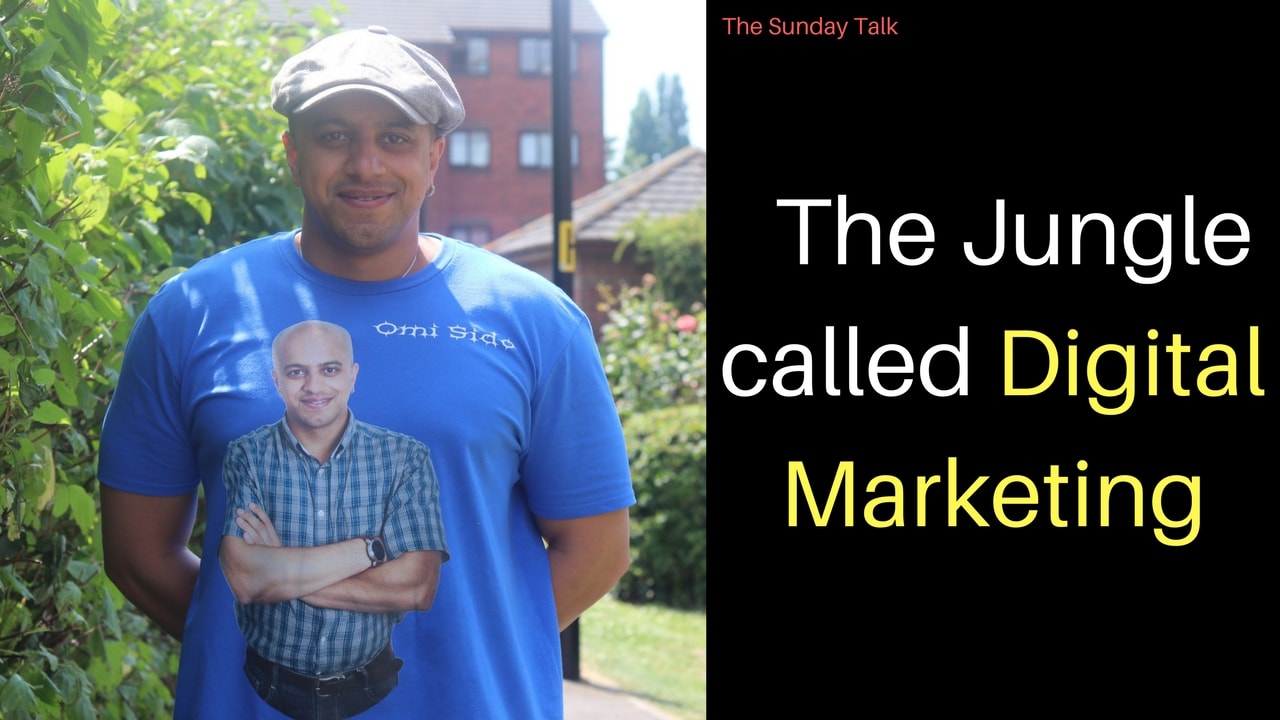Oh, Alexa stop!
This week is all about SearchLeeds PPC and SEO conference. Great speakers are going to the city of Leeds. Aleyda Solis gonna be there. Dawn Anderson gonna be there. Barry Adams gonna be there to name the few. The session I am really looking for – Arianne from icelolly.com ‘PPC vs SEO & why you can’t ignore either’.
Such an exciting week is ahead of us. Let the week begin.
Reading last week Sunday Talk comments made me think. Has digital made all traditional channels obsolete? You know I am all about digital so let me explain. The first thing I learnt as a marketer was that marketing is customer focused. So as marketers our main function is to understand our customers and work hard to develop products or services that suit their needs. To communicate and engage with our customers on platforms that suit them.
Did I just say platforms that suit them not you? So my first takeaway this week is: Don’t go with the trend.
Go where your customers are.
Just arrived in Leeds. Eight o’clock in the morning. Woke up five o’clock in the morning, jumped on the train for two hours and a half. Amazing city as you can see so double satisfaction. My first time at the SearchLeeds SEO conference and first time in this amazing city.
Gemma Houghton: Today Webcertain TV is here at SearchLeeds. We’ve been asking delegates to tell us ‘What is the biggest SEO trend of 2017‘. Here is what they had to say.
The biggest SEO trend, in my opinion, is relevancy. It’s all about relevancy. If your links, because everybody is talking about links, at this conference. If your links are not relevant to your content if your content is not relevant to why people are coming to your website then you are bound to lose in the long term.
Yes, I went all the way to Leeds. In one day. But trust me the conference was amazing. Yes, the PPC v SEO session – Arianne was spot on.
Arianne: I think we sometimes spent a little bit too much time kind of arguing over which is better. And the thing with search both organic and paid is we don’t generate demand we only harness demand. What we should be doing is making friends with people who work in other channels. Thinking about how we driving that demand.
How do we start driving demand from the upper and mid funnels of marketing that we can then both capture through search and hopefully convert in the most effective way for our clients?
Dawn Anderson took it to another level.
Dawn Anderson: But as Monica said the problem is near duplicate content is more difficult to detect than exact. Because exact is literally check the fingerprint the same filter it immediately. When you start to have like bits of this, bits of that you know it becomes very very problematic.
And then Barry Adams absolutely smashed it. Believe me, man he absolutely smashed it.
Barry Adams: For me, too many SEOs don’t understand these processes. Cause too many people use crawler and indexer in the same breath as it’s the same system. And totally is not. Googlebot is the crawler and it’s a very simple piece of software. Very fast. It just looks at the source code, follows links and sends everything it finds to the indexer.
The indexer does the interesting bit. That’s why Google calls it the Caffeine infrastructure. The indexer actually tries to figure out what is that it’s looking at. This is where the interesting analysis happen. This is where links get extracted. This is where javascript is executed. More on that later. and this is where the Search Console does the error.
Strangely enough two days after the conference I am still thinking about Will Critchlow’s session. Yes, the guy from Distilled. The guy from Distilled. He is probably right. In this industry human beings are trying to compete with machines. Sooner or later, sooner or later somebody will come up with a let’s call it the SEO robot to even the game. Because it is so true we just don’t know what works and what doesn’t.
Will Critchlow: Even Google themselves don’t always know why something is ranking where it is and what it would take to move it up. And so we are finding that we having to actually test our hypothesis. Take out different things onto different areas of the site and perform that kind of a scientific end of split testing.
Sometimes it feels like we are concentrating too much on the delivery and not the recipient – the actual user of your products or services.
SEO v PPC. Bud do your customers even know the difference or they just click on whatever is on top if the SERPs. And with Voice Search around the corner don’t you think that those two have to merge together into one single entity called probably Digital Marketing.
Mobile v Desktop. True, mobile is definitely taking over. But when I look at the data coming from my clients in seventy percent of the cases the transaction is still happening on a desktop.
To summarise this week. Google is trying to follow the ‘human’ trend. Byt us as digital marketers although we try and follow Google the feeling is we are going in a different direction.
Guys, next week I will continue exploring the jungle called Digital Marketing for you. But you do come back here next Sunday cause you’ve got the problems and I’ve got the solutions.


Leave a Reply